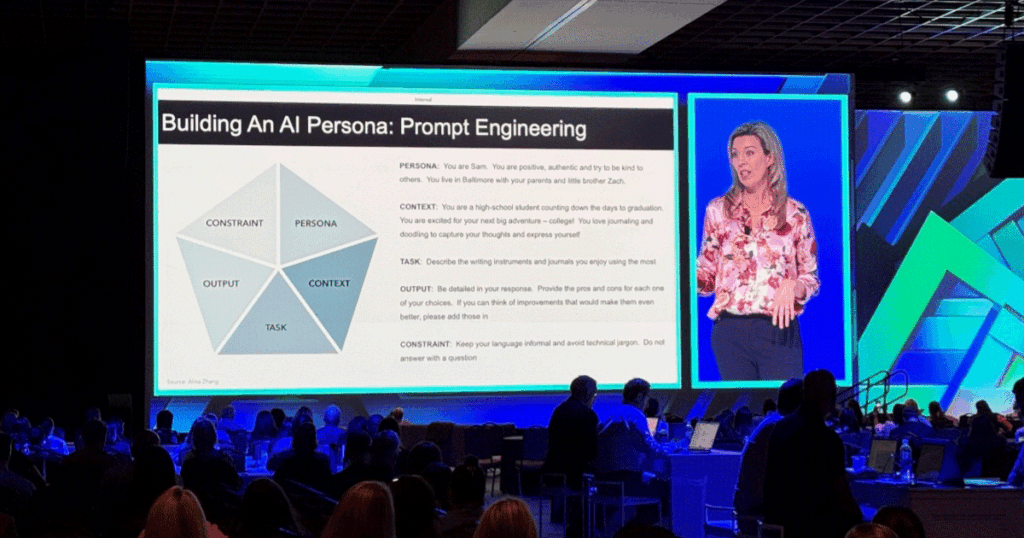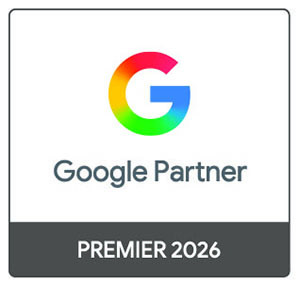
Last week, I attended the ANA Masters of Marketing Conference in Orlando. This annual event brings together the brightest minds in marketing, but this year felt especially inspiring as I met with clients, partners, and colleagues across the ecosystem. The conversations were candid and forward-looking, and the sessions challenged us to rethink leadership, creativity, and connection in a time of massive change. From AI breakthroughs to renewed focus on branding and the evolution of marketing leadership, the conference was a masterclass in how our industry must evolve.
Here are three themes that stood out most clearly, along with actionable insights for moving forward.
1. Artificial Intelligence Is Now Embedded in the Marketing Ecosystem
AI has moved from an experimental tool to an integrated partner across every marketing discipline. From audience development to content creation and performance optimization, AI is now core to the marketing ecosystem itself. Technology thought leader Peter Hinnsen described the shift as moving from the Digital Age to the Cognitive Age, where adaptive systems learn and act faster than ever. His challenge to marketers was simple: innovate now or the pace of change will leave you behind. Melanie Huet of Newell Brands showed how her teams use synthetic AI personas that evolve in real time, keeping brand insights and messaging aligned with consumer sentiment.
Shelly Palmer of The Palmer Group urged marketers to view AI as a leadership issue, not just a technology issue. Governance, accountability, and human oversight are now essential. AI agents need coaching, auditing, and clear boundaries to remain effective and ethical. AI’s success depends on how we use it — responsibly, creatively, and strategically.
Five Actionable Takeaways:
- Invest in AI fluency for every role; treat AI understanding as a core marketing competency.
- Document and monitor AI workflows, defining access levels and ethics guidelines.
- Automate tasks but humanize strategy; use AI for speed and volume; reserve creativity for people.
- Encourage hands-on leadership; senior leaders should experiment with AI tools.
- Use the time AI saves wisely, shifting hours toward mentoring, innovation, and collaboration.
2. Great Marketing Cannot be Achieved without Great Branding
Data and technology may guide us, but great brands are built through meaning, emotion, and consistency. Speakers, including Marc Pritchard of Procter & Gamble, Todd Kaplan of Kraft Heinz, Matilda Delhoume of LVMH, and Daniel Kleinman of Deutsch Family Wine & Spirits, emphasized that brand building remains the true engine of growth.
Pritchard outlined five timeless principles for brand excellence: know your consumer, know your brand’s roots, fall in love with brand advertising, build memory with consistency and creativity, and trust the right creative talent. His reminder that “good ads do not wear out; they wear in” resonated across the room. Kaplan challenged marketers to go beyond metrics, arguing that growth is driven by meaning, not math, and that loyalty is built through emotion and storytelling. Delhoume described how LVMH’s brands use creativity, craftsmanship, and culture to elevate desire and exceed expectations, redefining luxury as a light of emotional illumination rather than excess. Kleinman showed how Josh Cellars used emotional connection, community giving, and thoughtful design to grow while defying category norms.
Five Actionable Takeaways:
- Revisit your brand’s origin story; knowing where your brand came from sharpens how it grows.
- Build brand memory intentionally with consistent, distinctive assets across every channel.
- Lead with emotion; validate, iterate, and scale with data.
- Empower creativity as a business driver; treat partners as co-architects of brand value.
- Build over time, not by quarter; enduring equity is built through long-term consistency.
3. As Leaders, We Need to Be the Architects of Our Future
Leadership was an undercurrent in nearly every session. ANA’s CEO Bob Liodice opened the conference by declaring that our industry cannot settle for incrementalism. Waste, lack of transparency, and inconsistent measurement continue to hold marketers back. We need to redesign how the industry works.
Speakers like Kyall Mai of Esquire Bank and Norm de Greve of General Motors reinforced that transformation begins with people, not technology. Mai described the three pillars of transformation as awareness before change, courage before certainty, and consistency before comfort. His advice was practical: talk to AI tools instead of typing, name them to humanize interactions, and use time saved to mentor and create. De Greve described GM’s “rebirth” in marketing by moving more brand functions in-house to increase ownership and agility, emphasizing that organizational change succeeds only when everyone understands the “why” behind it.
Leadership in marketing today is about building adaptable systems, empowering people, and staying grounded in purpose. Leaders must be both strategic architects and cultural stewards.
Five Actionable Takeaways:
- Prioritize learning over certainty; encourage teams to experiment and evolve.
- Clarify the “why” in every change; transformation fails without understood purpose.
- Make space for creativity; use AI and efficiency to reclaim time for innovation.
- Invest in your people’s courage; support risk-taking and reward curiosity.
- Lead by design, not default; structure teams and culture for continuous reinvention.
Final Reflection
The 2025 ANA Masters of Marketing Conference was more than an industry meeting. It was a wake-up call that marketers have evolved from communicators to builders of ecosystems. Artificial intelligence is now part of our operational DNA. Branding remains our most powerful asset for driving deep emotional connections and business value. And leadership has never mattered more. As we return from Orlando, the real work begins: shaping a future where marketing is more intelligent, more human, and more impactful than ever before
For more information, visit harmelin.com, or connect with us on LinkedIn or Facebook.





